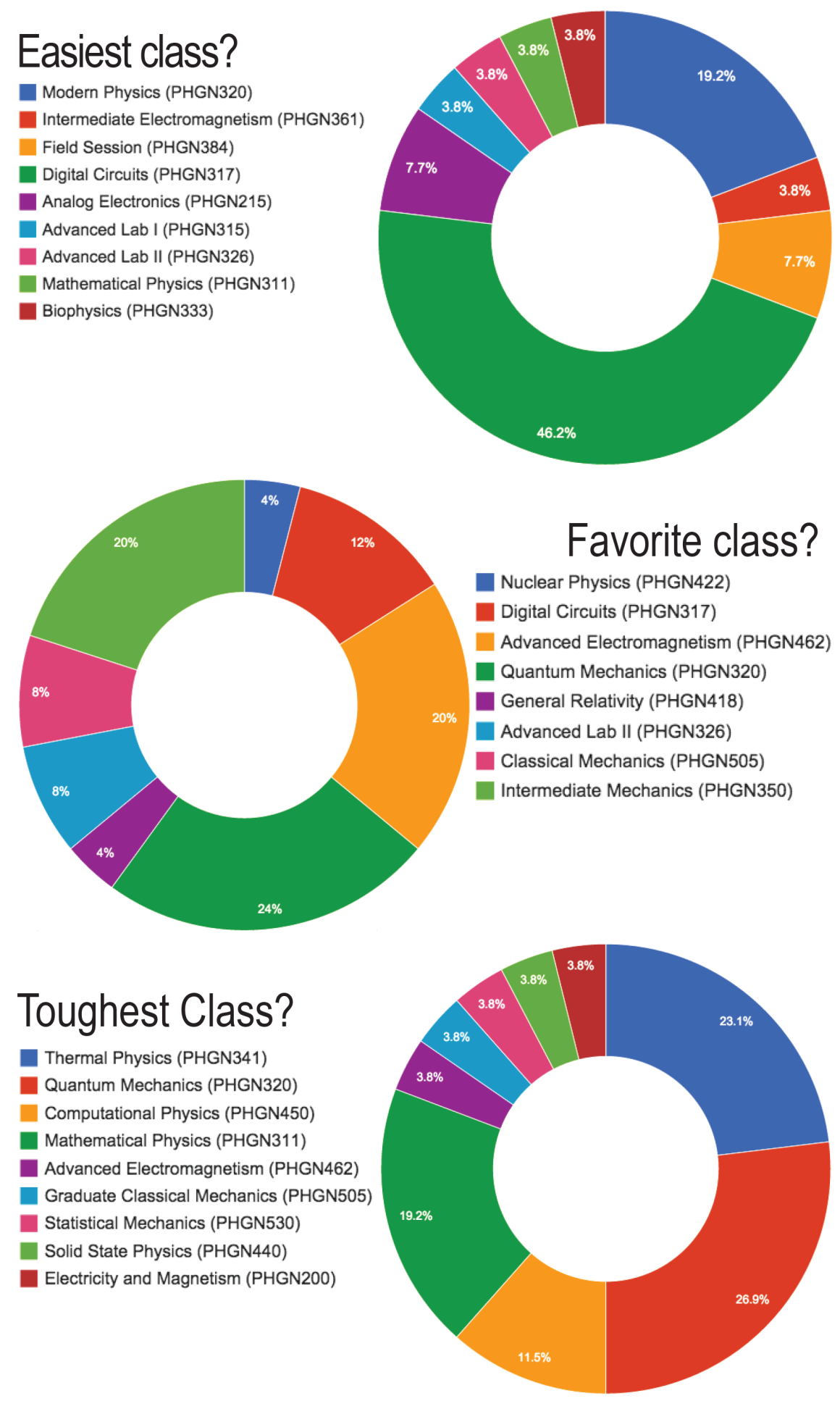 The following article is part of a recurring segment in which the Oredigger reviews a department on campus by interviewing the department head and surveying current seniors. To see more articles in this segment click here.
The following article is part of a recurring segment in which the Oredigger reviews a department on campus by interviewing the department head and surveying current seniors. To see more articles in this segment click here.
Below is a transcript of an interview with the Physics department head, Jeff Squier, conducted by the Oredigger.
What is the student to professor ratio?
We have 23 faculty and 245 undergraduates – so that gives us roughly a 10:1 student faculty ratio.
What is the number of undergraduate versus graduate students?
We have approximately 80 graduate students [and 230 undergraduates].
What are you most proud of in regards to the department? Or what makes this department stand out at Mines?
I am so proud of so many things in our program there is no way I can choose just one! I am a rookie this year – this is my first year as Department Head, and it is really giving me a different perspective. What I can tell you, having gone to my first round of national meetings for Department Heads/ Chairs in Physics is that we really do have an amazing faculty, staff and student body! We are pushing on all fronts – research and education, and are excelling in both. There are not a lot of programs that can say that!
What would you tell incoming freshman to point them towards Physics as a major?
If you are driven to understand the nature of the world at a fundamental level, and are excited about applying this knowledge to solve real-world problems, then Engineering Physics is for you!
Where do degree holders from this department usually end up career-wise? And how are the career prospects?
Its amazing to me the expanse of careers we are seeing the graduates enter. Half the students enter graduate school for more advanced degrees – and these are not limited to physics. They are doing electrical, mechanical and nuclear engineering, computer science, medical and biological science and much more. Students that enter industry are going to work for a broad range of companies. Many of these are energy related,but also include companies such as IBM, Intel, Martin-Marietta, Ball Aerospace. There are local favorites too – like Epilog Laser located here in Golden! There are a lot of exciting start-ups happening along the front range as well – it is great to see our graduates finding opportunities in these companies.
According to the department:
“The Engineering Physics degree combines the deep understanding of science fundamentals with the practical knowledge and skills of engineering practice and design. When you graduate from CSM with a major in Engineering Physics you will be ready to jump right into jobs that require a broad technical education. Our graduates can be found at places like Texas Instruments, Amoco, IBM, Lockheed-Martin, and many many others. You will also be well-prepared to continue specialization through graduate school, in physics or other related technical fields. The analytic skills developed in the study of physics are highly prized in other areas such as medicine or law. Those CSM physics graduates who have chosen to continue to study physics in graduate school have successfully competed with the best students from around the country for admission to the most competitive graduate schools, such as Cal Tech, Berkeley, Cornell, Harvard, MIT, Princeton, Stanford, Illinois, and many others.
 There are sound reasons why our graduates have been so successful. Our curriculum combines aspects of an engineering degree with the rigorous foundation of traditional physics. Our Engineering Physics program is fully accredited by ABET, the Accreditation Board for Engineering and Technology. We are one of only seventeen schools in the country with this distinction, and the only one in Colorado. With an appropriate selection of electives, many of our graduates apply to and are accepted at engineering graduate programs in mechanical, electrical, and materials engineering.
There are sound reasons why our graduates have been so successful. Our curriculum combines aspects of an engineering degree with the rigorous foundation of traditional physics. Our Engineering Physics program is fully accredited by ABET, the Accreditation Board for Engineering and Technology. We are one of only seventeen schools in the country with this distinction, and the only one in Colorado. With an appropriate selection of electives, many of our graduates apply to and are accepted at engineering graduate programs in mechanical, electrical, and materials engineering.
In addition to the collection of core courses that are required of every student at Mines you will study advanced topics in mechanics, electromagnetism, thermodynamics, electronics, and modern physics. The department also offers a broad selection of electives, including optical, nuclear, and solid-state physics, as well as biophysics, astronomy, and photovoltaics. A total of 130.5 semester hours of classes is required. Of these, nearly one fourth are electives. This flexibility makes it possible for you to minor in almost any area. Common choices include electrical engineering, mechanical engineering, materials engineering, geophysics, mathematics, and computer science.”

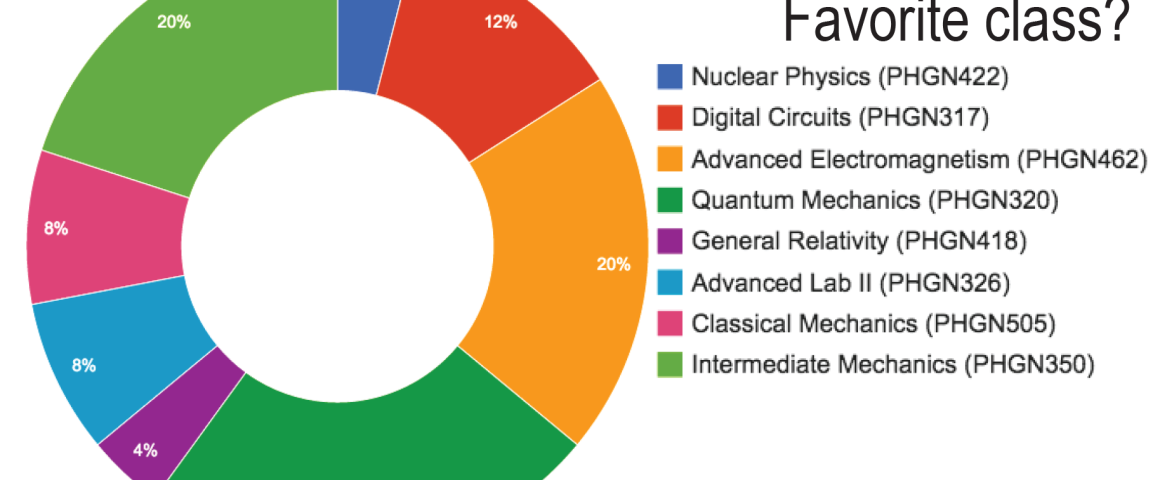
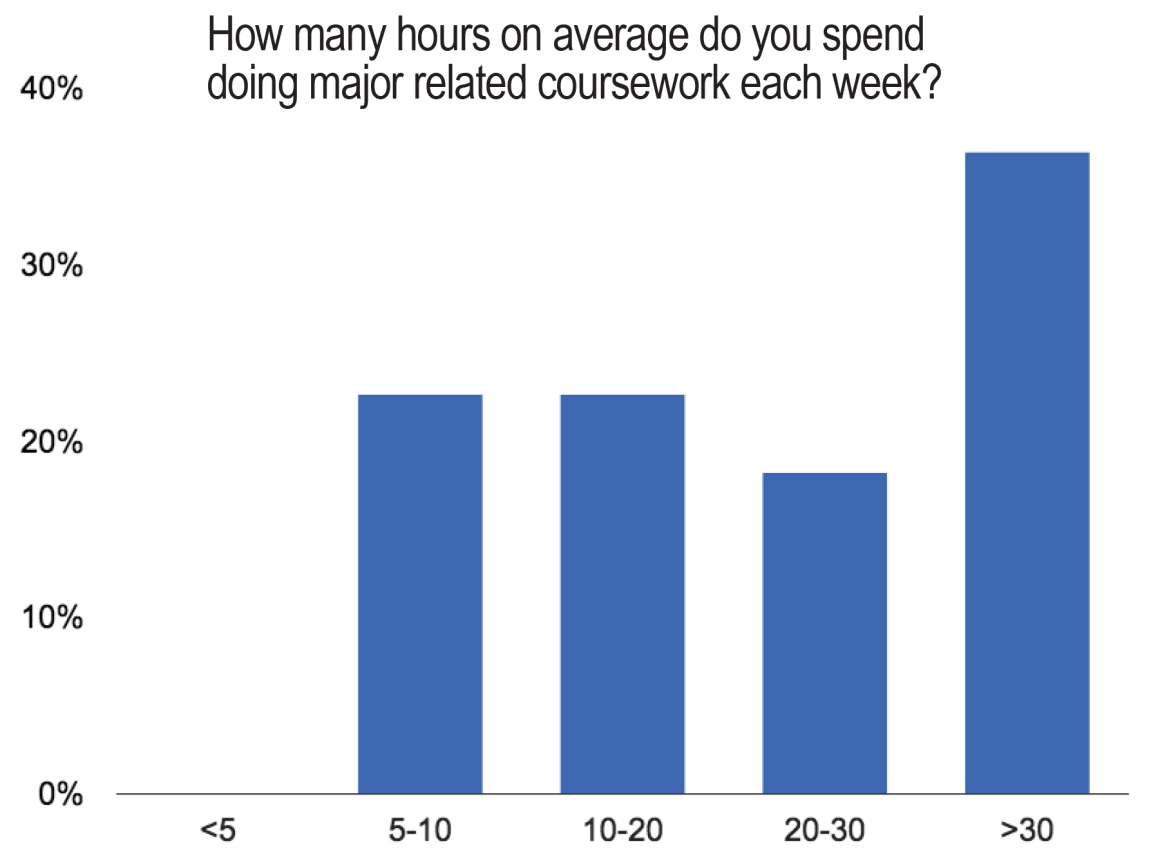
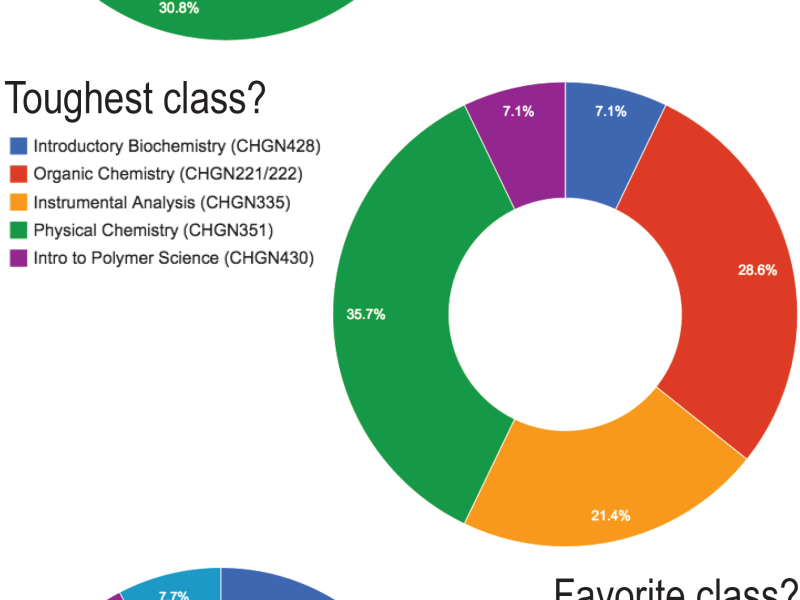
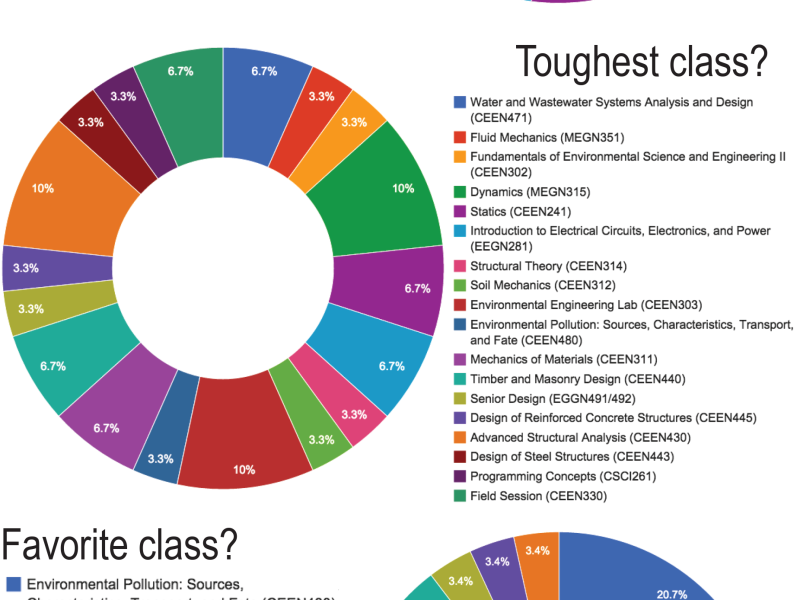
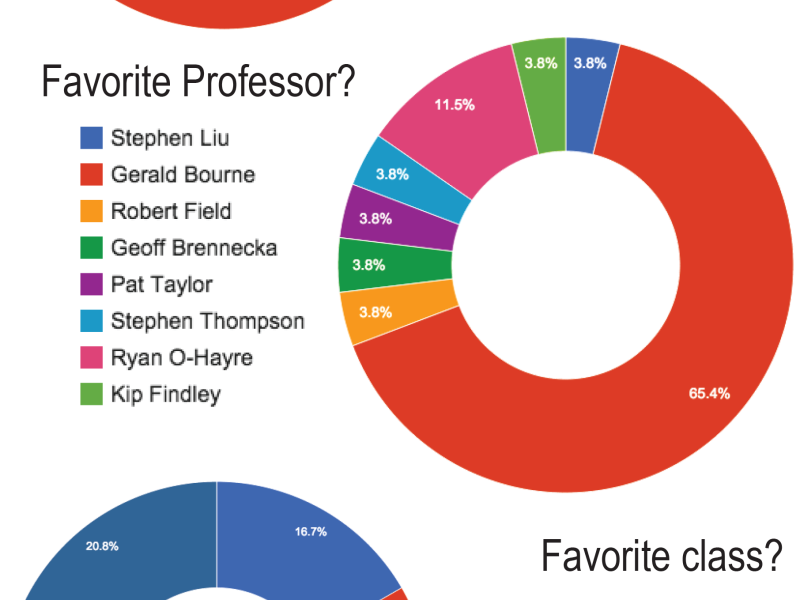
'Department in Review: Physics' has no comments
Be the first to comment this post!